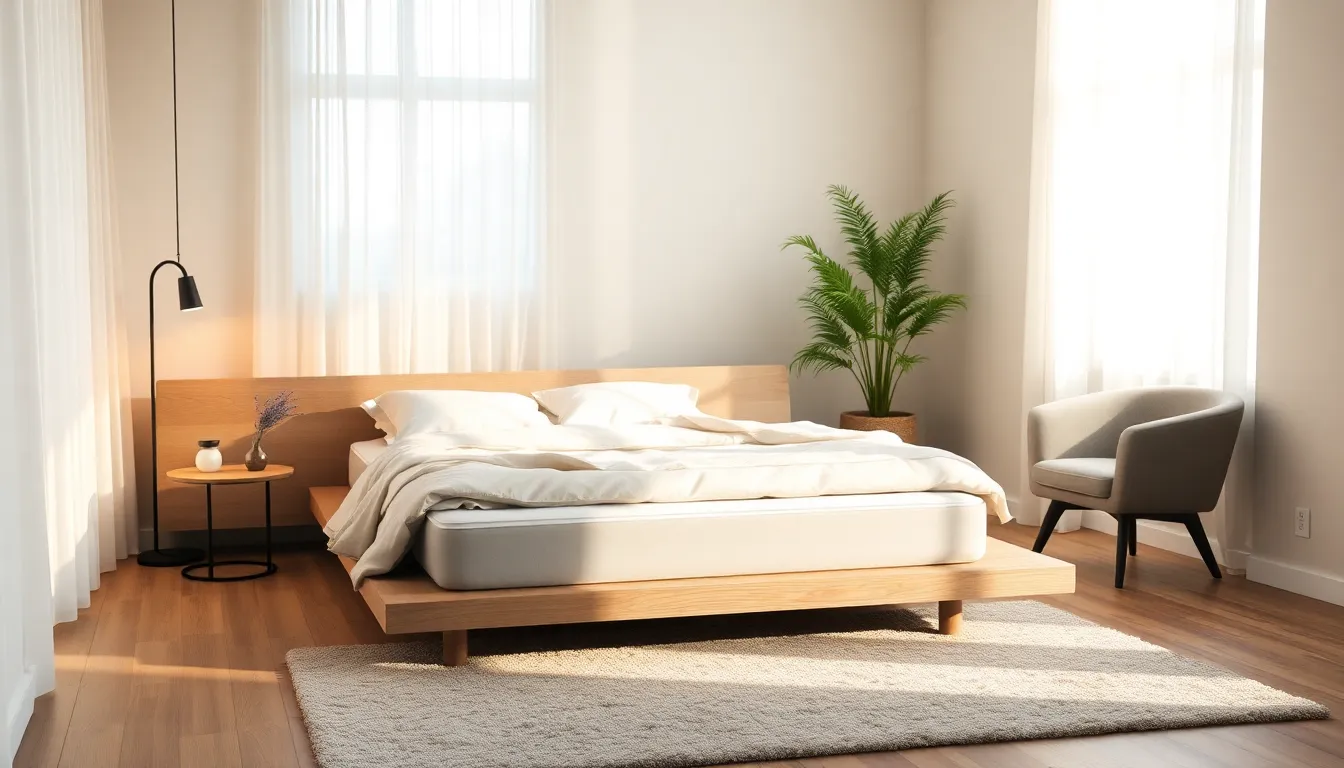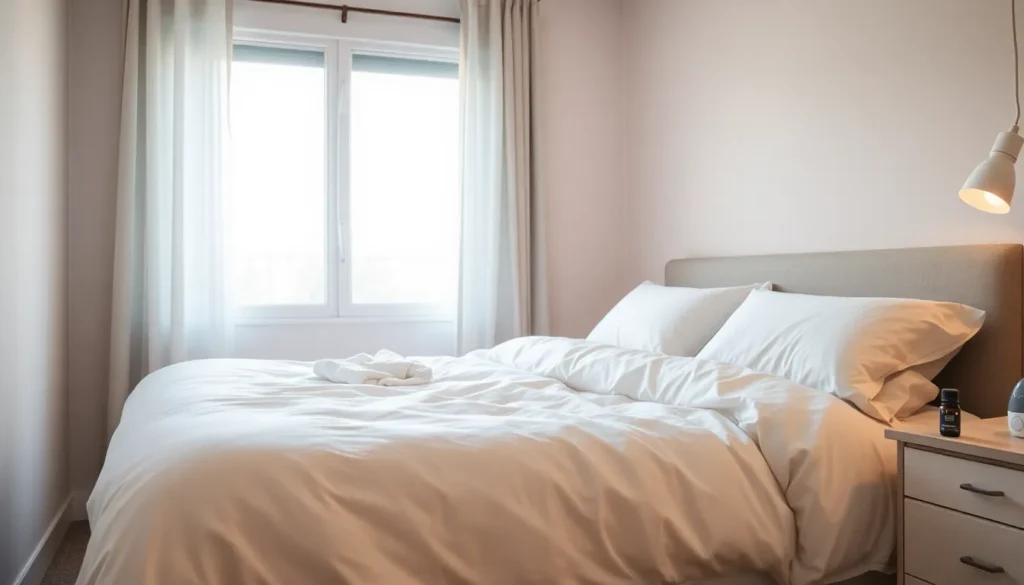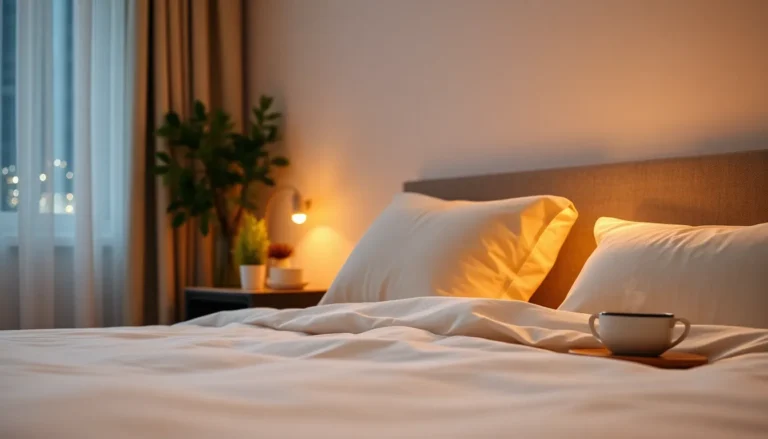Imagine a world where you don’t hit the snooze button five times before you finally roll out of bed. Imagine waking up refreshed, vibrant, and ready to take on the day. It’s not a fairytale: it’s a reality created by one simple solution, getting quality sleep. In this guide, we’ll unpack the essentials of how to sleep peaceful and unlock those avocados on your sleep report card with a sprinkle of humor and a whole lot of knowledge. So, grab your favorite pillow and let’s jump into the realm of restful nights.
Table of Contents
ToggleUnderstanding the Importance of Sleep

The Science Behind Sleep
Sleep isn’t just a time for dreams. It’s a complex process where the body undergoes various stages, each playing a crucial role in physical health and mental well-being. During sleep, the brain clears out toxins, consolidates memories, and regulates hormones. The National Sleep Foundation suggests that adults require between 7-9 hours of sleep per night for optimal health. Falling short on this can lead to a cascade of issues, from poor concentration to weakened immune responses.
Effects of Sleep Deprivation
The consequences of missing out on your Z’s are more severe than just feeling groggy. Chronic sleep deprivation has been linked with serious health issues such as obesity, diabetes, and cardiovascular disease. Plus to physical problems, it can also wreak havoc on mental health, causing anxiety and depression. So, the next time they say sleep is for the weak, remind them that it’s actually for the strong, those who prioritize their health and well-being.
Creating a Sleep-Friendly Environment
Optimal Bedroom Conditions
What’s a cozy bed without a cozy room? A sleep-friendly environment includes elements like comfortable bedding, a supportive mattress, and a cool, darkened room. Experts recommend keeping the temperature between 60-67 degrees Fahrenheit for optimal sleep. Also, blackout curtains can work wonders, blocking out unnecessary light from streetlamps or the rising sun. Aromatherapy, with calming scents like lavender, might just tip the scales toward peaceful slumber.
Reducing Noise and Distractions
Noise can be the arch-nemesis of a good night’s sleep. Unwanted sounds like traffic or snoring can prevent you from falling into deep sleep. Consider using white noise machines or earplugs to minimize disruptions. Also, limit technology use before bed. The blue light from screens can interfere with melatonin production, the hormone responsible for regulating sleep. So, put down your phone and say goodbye to that late-night scrolling.
Essential Sleep Hygiene Practices
Establishing a Consistent Sleep Schedule
Going to bed at the same time every night may sound like too much of a commitment, but it’s essential for effective sleep hygiene. The body loves routine: it thrives on consistency. By establishing a regular sleep schedule, you help synchronize your body’s internal clock, allowing for a more peaceful and restorative sleep. Even on weekends, try to stick to similar bedtimes and wake-up timings to maintain this rhythm.
The Role of Diet and Exercise
What we munch on during the day can significantly impact our sleep quality at night. Heavy meals before bedtime can lead to discomfort and troubled sleep. Instead, opt for a light snack if you’re feeling peckish in the evening. Exercise, too, has a major role in promoting better sleep. Strive for at least 30 minutes of moderate exercise on most days. But, avoid vigorous workouts close to bedtime, as they can have the opposite effect.
Techniques for Relaxation and Stress Reduction
Mindfulness and Meditation Practices
Finding the peace of mind necessary for restful sleep can be as simple as practicing mindfulness or meditation. Even as little as ten minutes of guided meditation can effectively reduce stress and promote relaxation. Incorporate deep breathing, focusing on your breath to calm your racing thoughts. There are various apps and resources available, allowing anyone to start their journey toward mindfulness and a more peaceful mind.
Breathing Exercises for Better Sleep
Breathing exercises serve as wonderful tools for inducing relaxation. The 4-7-8 technique, for example, involves inhaling through the nose for four seconds, holding your breath for seven seconds, and exhaling through your mouth for eight seconds. This exercise helps lower heart rate and calm the nervous system, making it a perfect bedtime ritual.
When to Seek Professional Help
Signs You May Have a Sleep Disorder
It’s vital to recognize when your sleep troubles might require professional attention. If you consistently struggle to fall or stay asleep, experience daytime sleepiness, or find that your partner mentions loud snoring or gasping for air, you may have a sleep disorder. Conditions like insomnia or sleep apnea require specialized treatment and shouldn’t be taken lightly.
Consulting a Sleep Specialist
A sleep specialist can help pinpoint underlying causes and recommend tailored treatments. From cognitive-behavioral therapy for insomnia to medical devices for sleep apnea, there are numerous options available. Remember, seeking help is a sign of strength, not weakness.



